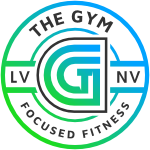When people think of a bodybuilder diet the first thing that comes to mind is mountains of meat, fish, and eggs.
While it’s a solid choice, many vegetarians who want to get into building serious muscle find themselves discouraged.
Fortunately, vegetarian bodybuilding is completely possible. You just need to make some minor alterations to the usual fare.
If you’ve been wondering how to build mass without taking in meat, you’re in the right place. Read on and we’ll get you started on your way to your ideal meat-free body.
Finding Sufficient Protein
That’s not to say it’ll be easy. For a vegetarian, there are a lot of high-protein foods that aren’t an option due to dietary restrictions.
If you’re of the lacto-ovo variety then you’re in good hands since dairy and eggs are both awesome sources of protein. Just be careful with going overboard on eggs since they have a high cholesterol content.
For those who primarily stick with an entirely plant-based diet or have gone full vegan, there are a few different high-quality sources of protein which are easy to get your hands on:
- Hemp seeds
- Beans
- Quinoa
- Brown rice
- Nuts
By switching around how you eat it’s possible to get a lot more protein than normal. For instance, quinoa can be used instead of rice in a wide variety of dishes, and a simple substitution can add a ton of extra protein to your diet.
The best option, of course, is to supplement with plant-based protein powder. Going down this route is a little bit more expensive than with the usual whey protein fare but it’ll allow you to keep your diet and get the extra protein you need.
Be mindful of your protein intake, you’ll require the same amount as any other bodybuilder and even with the right foods, it can be hard to hit the recommended 1.4g-1.7g per pound intake.
Supplemental Nutrition for Vegetarian Bodybuilding
Protein isn’t the only thing that you need to be mindful of, however, the workouts may be the same but your micronutrient profile is different than that of someone on an omnivorous diet.
The biggest culprits in the average vegetarian or vegan diet are low iron and calcium levels. Iron deficiencies will cause fatigue while low calcium can cause loss of bone density.
Fortunately, it’s a simple enough issue to fix. Spinach and broccoli are both great sources of iron and calcium.
And, of course, a multivitamin is always a good idea to shore up any gaps in nutrition from your diet.
No Excuses, You Can Get There
While vegetarian bodybuilding might seem a bit harder, it’s something which can be accomplished. Some relatively small modifications to your diet and supplementing wisely will get you there.
It takes time to dial in a diet and exercise routine, don’t be discouraged if you don’t have big early gains.
If you think you’re ready and you’re in the Las Vegas area, come on down and see what our personal trainers can do for you.




